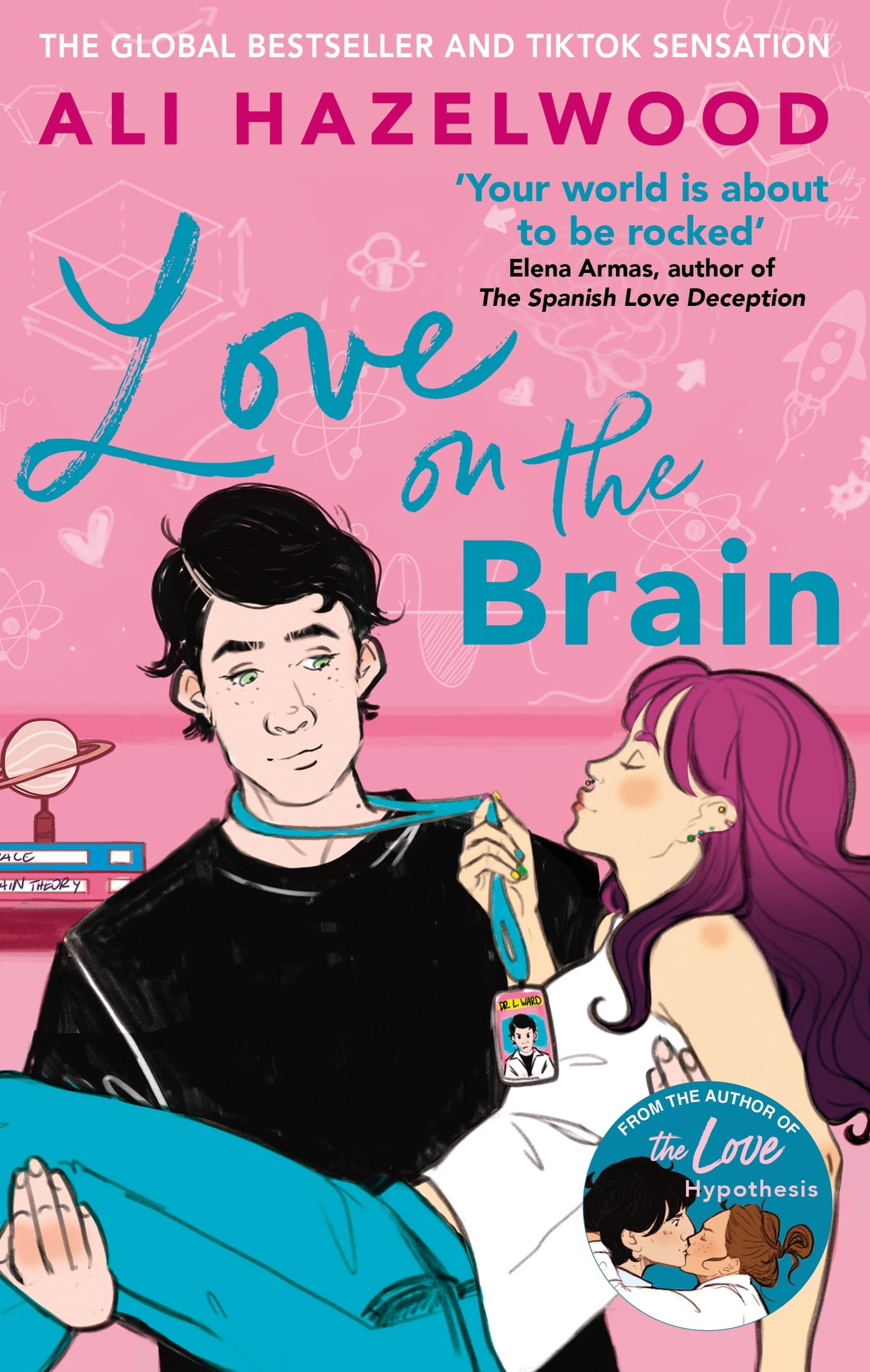Oh boy, where do I start. I suppose some context never hurt: I read The Love Hypothesis before this and gave it a 3/5 stars. I liked it mostly because it appealed to my specific interests and background. It was like junk food: fun, but not particularly engaging. I didn't find it too annoying to read at any point, and soared through it (especially since its relatively short). I expected something similar from Love on the Brain. Maybe not exactly as up my alley as The Love Hypothesis was, but something that would be relatable as a person that isn't very well represented in STEM. I got so, so much less.
To begin, this book felt like marvel movie fanfiction with all the fourth wall breaks and referential humor that went on . Given that I am not a fan of marvel movies mostly because of its "quippy" humor, this was grating. I felt myself immediately pulled out of my immersion in the story as soon as a quippy joke or modern meme was used in the book. Of course it was the same for the fourth wall breaks, but that's sort of their point, so I don't want to explicitly mention them in the context of that gripe. I think the worst occurrence of this in the book was "look it up." in reference to a relevant date. I had to push through hard to just finish the last bits of the book after that.
The characters also felt like they had little depth. Bee was the most well-developed, but I still felt like it wasn't really demonstrated how much her tragic love life and the betrayal she experienced really hurt. We were told it hurt her, but didn't see any of the effects beyond "oh I can't get into this relationship because I'm damaged from this past experience." All of that hurt and greiving is left as things that occurred before the book, and I think that is a great detriment to character development. Also, I feel like we learned literally nothing about Levi. Just bits here and there about his family and how that effects his behavior, and some parts of his life in grad school, and that's it. We never get to learn about his growth through therapy or anything like that.
Oh yes, and the villain in the end was barely believable, and how he gets discovered is not believable at all. Don't want to spoil it too much - I want to leave this untagged.
Like I mentioned earlier, I'm a non-binary person in a STEM PhD program myself. It's hard being under-represented in STEM, and I've faced a lot of quiet discrimination for it. As someone that experiences similar problems that Bee has, how Bee went about talking about this STEM discrimination throughout this book just felt like a mockery sometimes. Don't get me wrong, all people underrepresented in STEM should cope with that in whatever way feels best to them, but the way she talked about it occasionally felt like "oh boys hate girls in their little STEM playground uwu." Like it was silly. I know making light of things helps sometimes, but some care should be taken with it when written into a quite popular book (unlike when you throw a tweet out into the universe to complain about your labmate being a dick). This is entirely my opinion on this and it is not a large influence in how I'm rating this book, but I just wanted to mention it.
Anyway, all of these factors together just made this so unpleasant to read. It took me significantly longer to read for that reason. I'm probably just not the audience for this quippy/fourth wall break humor. Nor the audience for these characters.


